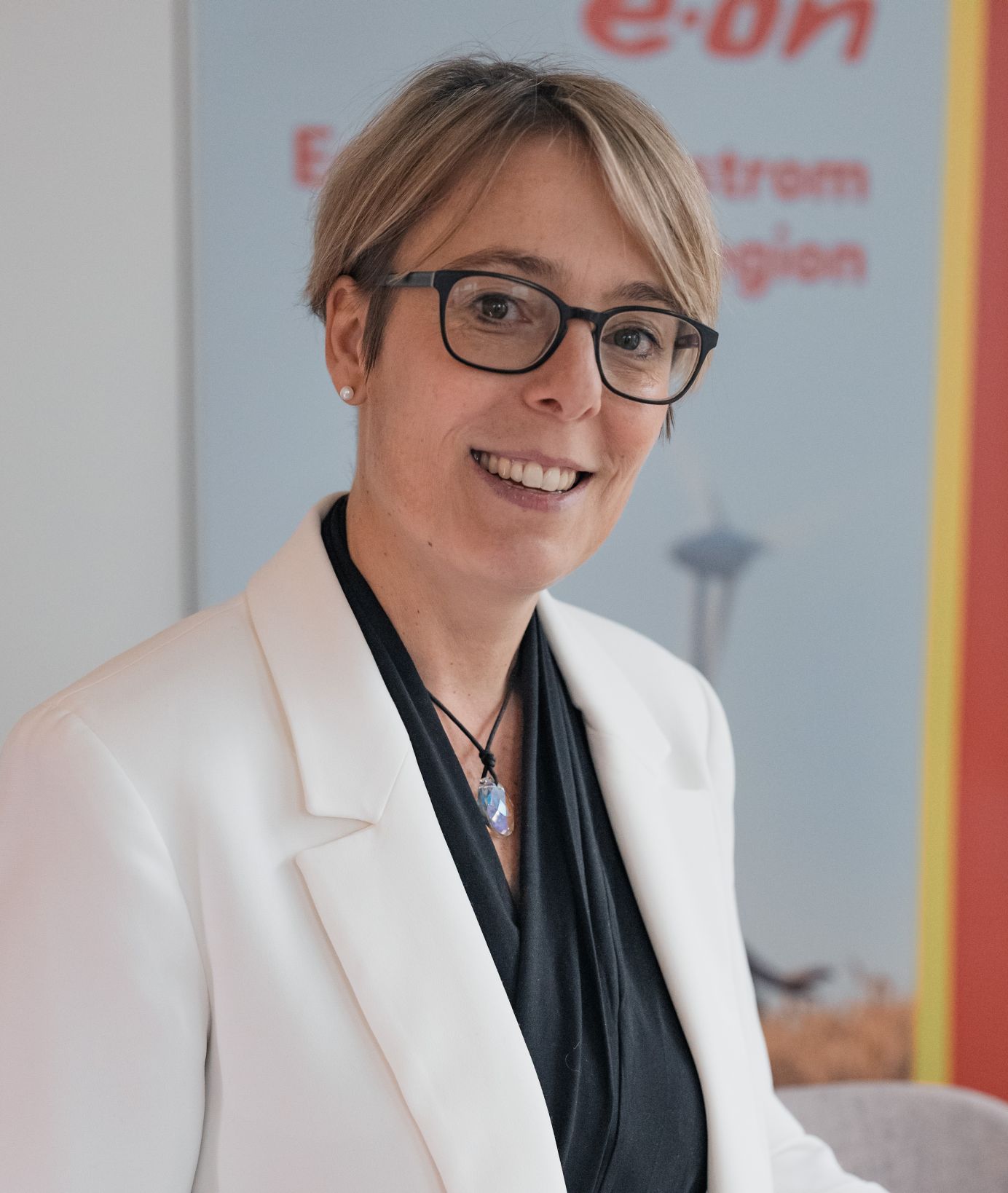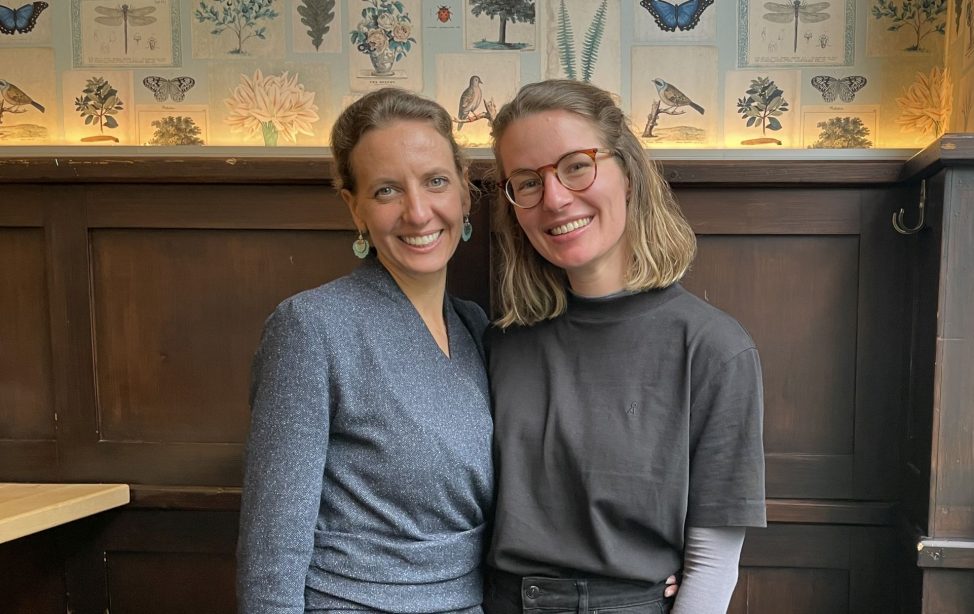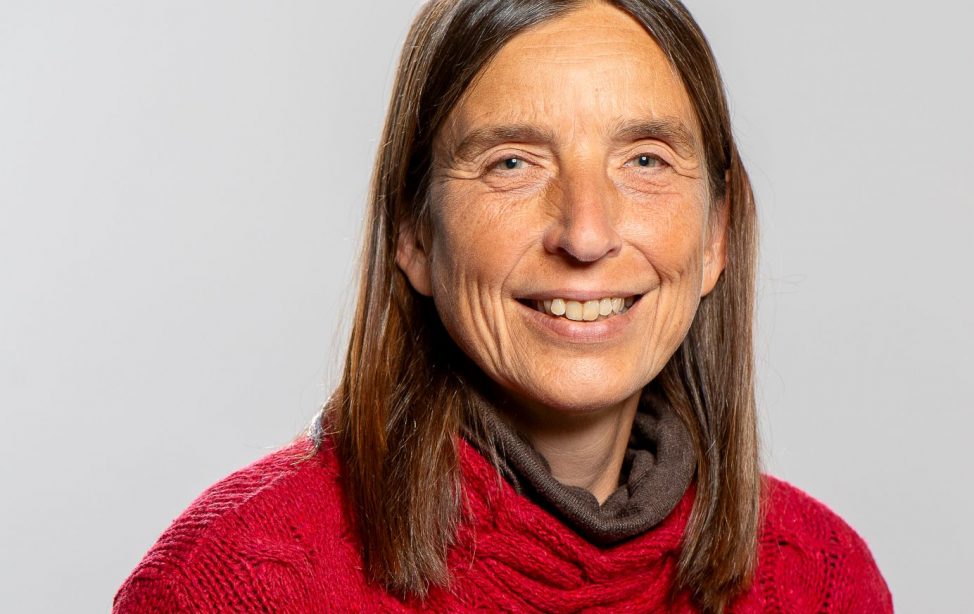
Claudia Häpp ist bei einem großen Energieversorger neuen Produkten, Dienstleistungen und Services für Privat- und Geschäftskunden auf der Spur, die auf smarten Lösungen basieren. (Bild: Benedikt Klaus/ Neukla).
Executive Claudia Häpp
“Pioneering Work in the Energy Sector”
INTEGRATING DATA
“Looking at the various products and services in private homes, almost all of them now have some kind of interface with the Internet,” she says. “So they are networked and therefore part of a smart home.” This starts with controls for blinds and shutters, and extends to heating and household appliances, and also includes various voice assistants and entertainment electronics. “What is still missing are the applications from the energy sector.” An important innovation now under development, she says, is the smart electricity meter. The so-called smart meters are able to digitally receive data, such as tariff changes, while also sending information, such as the volume of electricity passing through.
In order for these smart meters to facilitate communication between customers and energy suppliers and also to improve customer acceptance, there are still a number of things that need to be tweaked: “One important part is ensuring security,” says Claudia Häpp. “After all, some of the data concerned is sensitive, and no one wants strangers to control their household.”
Energy suppliers need household data, among other things, to introduce flexible electricity tariffs based on the time of day. Depending on the times when little or a lot of electricity is being consumed, for example because many household appliances are running, the tariff could change. “The first flexible tariffs have been introduced recently,” Claudia Häpp says.
TUM CREATED THE PERFECT FOUNDATIONS
Studying Nutritional Science and Home Economics at TUM, she focused on the technological aspect rather than on Nutritional Science straight from the start: “Household technology, i.e. the preparation of food, was what interested me the most”. At TUM, she says, there was a lot of emphasis on consumers and their needs in addition to fact-based teaching around household technology. This combination is rare, Claudia Häpp believes: “For me, it was a stroke of luck.” The course therefore laid the perfect foundation for her diploma and doctoral theses on household appliance networks and smart homes.
At the turn of the millennium, smart homes were still in their infancy. “My time at TUM was simply brilliant. I always had the feeling that I was able to benefit from cutting-edge teaching here.” And today she still wants to help shape the future: “I want to do pioneering work in well-established structures,” Claudia Häpp says. “The energy sector has a lot of potential here.”
DIGITAL PATHWAYS
However, according to Claudia Häpp, there is no way around digitalization. It plays a key role not only in day-to-day work, but also in the energy supplier’s product and service development. Both private and business customers have long been demanding digital options: “This starts with online contracts and extends to automatic monthly billing, which is possible with smart meters,” Claudia Häpp says.
Claudia Häpp continues to foster the bond with her alma mater, as well as with TUM’s young talent: “I strongly believe in TUM graduates and already hired several of them for my teams and have never been disappointed.”

Claudia Häpp (Bild: Benedikt Klaus/ Neukla).
Claudia Häpp
Diploma Ecotrophology/Nutritional Science and Home Economics 2003
Claudia Häpp started studying Ecotrophology/Nutritional Science and Home Economics at TUM after graduating from high school. Very early on, she focused on household technology and made “networked households” the topic of her diploma thesis. Part of the work involved interviewing test households with networked household appliances. In this process she got in touch with one of Europe’s leading household appliance manufacturers, BSH Hausgeräte GmbH. In the framework of a joint project of Giessen University and BSH, she wrote her doctoral dissertation on “networked households,” which received a magna cum laude grade in 2007.
Following her doctorate, the company offered Claudia Häpp a consulting position. In 2009, she was promoted to Senior Project Manager in the “Home Connect” segment, and in 2015 she became Head of Innovation and User Interaction and User Experience. At BSH, she dealt with the development of networked home appliances. In 2016, she switched to the utility side and joined E.ON Deutschland GmbH. As Vice President of Product Design, she now focuses on smart energy topics related to smart meters and flexible electricity tariffs.


